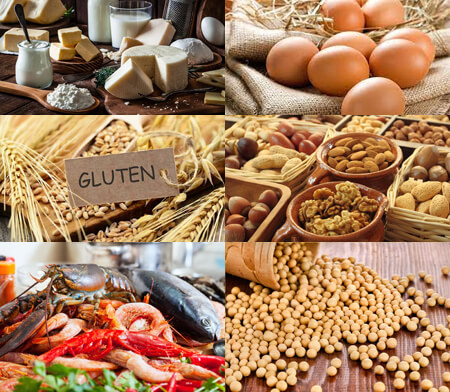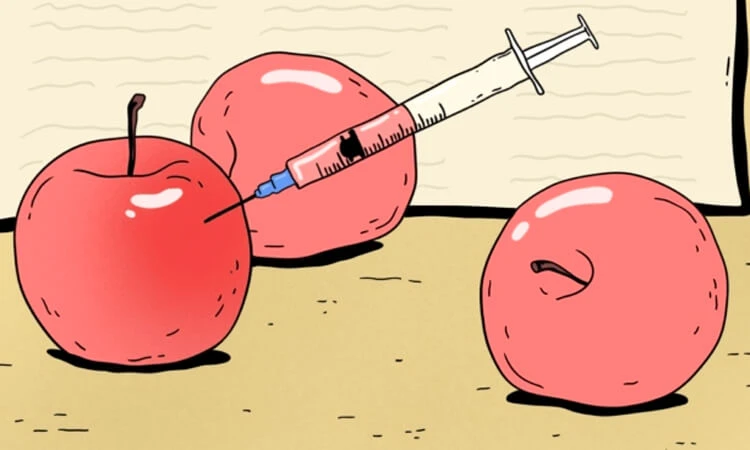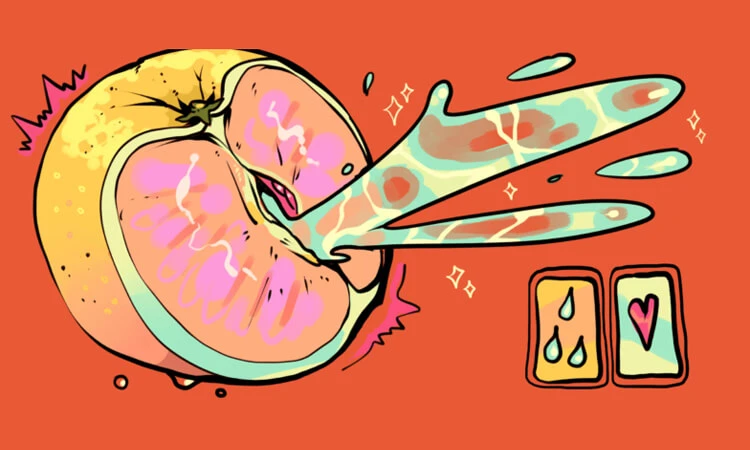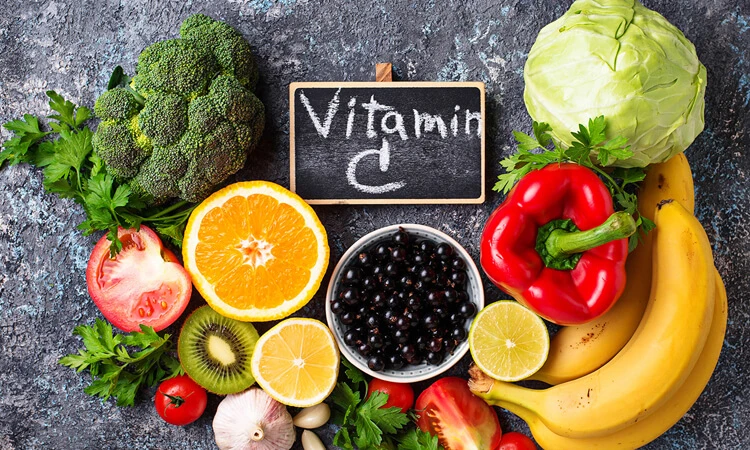- Video: Best Food for Hay Fever (Seasonal Allergies)
- What foods are most often allergic to
- Video: These 8 Foods Cause Most Allergic Reactions
- How food allergy manifests
- Video: Best and Worst Foods to Eat with Hay Fever (Allergic Rhinitis) | How to Reduce Signs and Symptoms
- What can I eat with allergies
- Video: How to Do an Elimination Diet
- Patient's note
- Video: Foods that fight fall allergies
- Diet during an exacerbation
- Video: Here's how your diet can help your allergies
- Basic nutrition rules for allergies
- Video: Food Allergy & how it affects SKIN | Causes, Symptoms & Treatment-Dr.Rajdeep Mysore |Doctors' Circle
- How to avoid future allergies
- Video: How I Fixed Sinus Problems and Seasonal Allergies FOR GOOD
- Rate the author (2)
- Comments (5)
With allergies, it is very important to eat right to avoid contact with allergens and strengthen the body. Here are some tips:
- Remove all foods that you are allergic to from your diet. These can be dairy products, eggs, gluten, soybeans, nuts, seafood, etc. If you're not sure which foods are causing your allergies, see an allergist or dietitian.
- Increase your consumption of fruits, vegetables, herbs, berries that do not cause you allergic reactions. They contain many vitamins, minerals and antioxidants that strengthen the immune system.
- Prefer natural products and avoid food additives, dyes, preservatives and other artificial ingredients.
- Reduce your intake of sugar, salt, and fats, which can worsen an allergic reaction.
- Drink enough water to keep your body hydrated.
- If you have a severe allergy, be sure to carry antihistamines or epipen with you to quickly alleviate an allergic reaction if necessary.
- Before starting any diet or changing your diet, always seek expert advice and support.
So, what is the hypoallergenic universal diet for allergies - further in our article.
Video: Best Food for Hay Fever (Seasonal Allergies)

What foods are most often allergic to
Allergies can occur to a variety of foods, but the most common food allergens include:
- Dairy products, including milk, cheeses, yoghurts and butter.
- Eggs.
- Gluten found in wheat, rye and barley.
- Nuts, including almonds, cashews, hazelnuts, walnuts, pecans and more.
- Seafood including fish, shrimp, mussels and more.
- Soybeans.
- Fruits, including oranges, apples, bananas, strawberries, raspberries and more.
- Vegetables, including carrots, celery, tomatoes, potatoes, and more.
- Seeds, including mustard, sesame, pumpkin and sunflower.
- Bee products, including honey, pollen and propolis.

If you suspect you are allergic to certain foods, it is important to see an allergist for diagnosis and treatment.
Video: These 8 Foods Cause Most Allergic Reactions

You may be interested in the information the benefits and harms of milk fungus - read in our another article.
How food allergy manifests
Food allergies can present with a variety of symptoms, which can be mild or severe, depending on the severity of the allergic reaction. Some of the most common food allergy symptoms include:
- Skin manifestations such as hives, itching, redness, swelling and rashes.
- Eye irritation, tearing, itching and redness of the eyes.
- Rhinitis, nasal congestion, sneezing, coughing, shortness of breath and other manifestations of respiratory allergies.
- Pain in the abdomen, nausea, vomiting, diarrhea and other manifestations of allergy to the gastrointestinal tract.
- Headache, weakness, dizziness and other manifestations of allergy to the nervous system.
- Anaphylactic shock, which is a severe form of an allergic reaction that can lead to loss of consciousness, respiratory and cardiac arrest.
If you suspect a food allergy, it is important to see an allergist for diagnosis and treatment. An allergist can perform allergy tests to determine which foods you are allergic to and prescribe appropriate treatment, which may include antihistamines, corticosteroids, immunotherapy, and other methods.
Video: Best and Worst Foods to Eat with Hay Fever (Allergic Rhinitis) | How to Reduce Signs and Symptoms

You may be interested in information about why you need to drink water with apple cider vinegar - read our other article.
What can I eat with allergies
In case of allergies, it is recommended to avoid foods that cause allergic reactions, as well as increase the consumption of fruits, vegetables and other foods that do not cause allergies.
It is also recommended to avoid artificial ingredients and additives, reduce your intake of sugar, salt and fat, keep your body well hydrated, and carry antihistamines or an epinephrine autoinjector in case of severe allergic reactions.
In addition, you should pay attention to the individual characteristics of the body and consult with an allergist or nutritionist to choose the best diet. Some foods that can cause allergic reactions include dairy, eggs, gluten, nuts, seafood, soy products, fruits, vegetables, and bee products.
Video: How to Do an Elimination Diet

Patient's note
If you have allergies, you need to remember the following things:
- Avoid contact with allergens that cause you a reaction. It can be dust, pollen, animals, food, etc. If you cannot avoid exposure to the allergen, wear a mask or use other protective equipment.
- Take antihistamines and other medicines prescribed by your doctor to reduce your allergy symptoms.
- If you have a severe allergic reaction that causes choking, throat swelling, or anaphylactic shock, call an ambulance immediately.
- Avoid foods that cause you an allergic reaction. Your doctor may recommend a special diet or medication to help manage your symptoms.
- Carry an epinephrine auto-injector with you to quickly relieve symptoms of anaphylactic shock, if needed.
- See your doctor regularly to assess your allergy status and adjust your treatment if necessary.
- Avoid smoking and exposure to tobacco smoke as this can worsen allergy symptoms.
- Contact your doctor if you experience new or worsening allergy symptoms.
The Allergy Patient's Memo should contain these recommendations and individual recommendations provided by the doctor.
Video: Foods that fight fall allergies

Diet during an exacerbation
When an allergy flares up, it's important to watch your diet to avoid making your symptoms worse. Here are some tips:
- Avoid foods that can cause an allergic reaction. If you know that you are allergic to a certain food, then do not eat it. You should also avoid foods that often cause allergic reactions, such as dairy products, eggs, gluten, nuts, seafood, soy products, fruits and vegetables.
- Increase your intake of fruits, vegetables, and other foods that do not cause allergic reactions. They contain many vitamins and antioxidants that can help boost your immunity and reduce inflammation.
- Avoid products with artificial additives and preservatives. They can cause allergic reactions and make symptoms worse.
- Reduce your intake of sugar, salt and fat. They can aggravate inflammation and cause other health problems.
- Drink enough water to stay hydrated and help your body flush out toxins.
- Contact an allergist or nutritionist for advice on diet during an allergy flare-up. They will be able to assess your situation and give specific nutritional advice.
I hope these tips will help you reduce your allergy symptoms during a flare-up. However, if you have serious health problems, be sure to see a doctor.
Video: Here's how your diet can help your allergies

Basic nutrition rules for allergies
Dieting during an allergy flare plays a very important role in reducing symptoms and improving overall health. Basic food rules for allergies include the following:
- The exclusion from the diet of foods that cause an allergic reaction. If you have an allergy to a certain product, then you need to eliminate it from your diet. In addition, you should avoid foods that often cause allergic reactions, such as dairy products, eggs, gluten, nuts, seafood, soy products, fruits and vegetables.
- Increased consumption of foods that do not cause allergic reactions. Fruits, vegetables, herbs, cereals, legumes, meat, fish, berries and nuts that do not cause allergic reactions should be consumed in sufficient quantities.
- Avoiding foods with artificial additives and preservatives. They can cause allergic reactions and make symptoms worse.
- Restriction of sugar, salt and fat intake. They can exacerbate inflammation and cause other health problems.
- Consumption of clean water in sufficient quantities. Adequate fluids help to stay hydrated and help the body flush out toxins.
- Supplement with quality probiotics and prebiotics to boost immunity and help improve digestion.
- Contact an allergist or nutritionist for personalized dietary advice during an allergy flare-up. They will be able to assess your situation and give specific nutritional advice.
It is important to understand that the diet for allergies can be individual and depends on the type of allergy and the individual characteristics of the organism. Therefore, if you have serious health problems, be sure to consult a doctor.
Video: Food Allergy & how it affects SKIN | Causes, Symptoms & Treatment-Dr.Rajdeep Mysore |Doctors' Circle

How to avoid future allergies
It's not always possible to avoid allergies in the future, but there are several ways you can help reduce your risk of developing them:
- Breastfeeding. If possible, breastfeeding is recommended for the first 6 months of a child's life. Breast milk contains antibodies that help boost the baby's immune system and reduce the risk of developing allergies.
- Early introduction of complementary foods. The introduction of complementary foods should begin at 6 months of age and should be gradual. It is recommended to start with one new product in a small amount and monitor the reaction of the child's body.
- Avoid contact with allergens. Try to avoid contact with allergens that may cause you an allergic reaction. For example, if you are allergic to dust, try to clean your house regularly, use special filters in your vacuum cleaner, and do not keep a lot of soft toys and carpets in the house.
- Keep hygiene in mind. Wash your hands regularly and use perfume to avoid contact with bacteria and viruses that can damage the immune system.
- Keep a healthy lifestyle. A healthy lifestyle that includes proper nutrition, regular physical activity, adequate rest and reduced stress will help strengthen the immune system and reduce the risk of developing allergies.
- See your doctor. If you have a predisposition to allergies or already have certain allergies, please consult your doctor for specific advice and preventive measures.
I would like to note that not all allergies can be prevented, but following these simple rules will help reduce the risk of their occurrence.
Video: How I Fixed Sinus Problems and Seasonal Allergies FOR GOOD

















Comments (5)